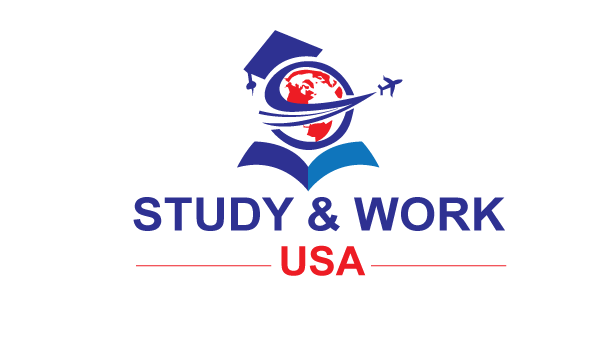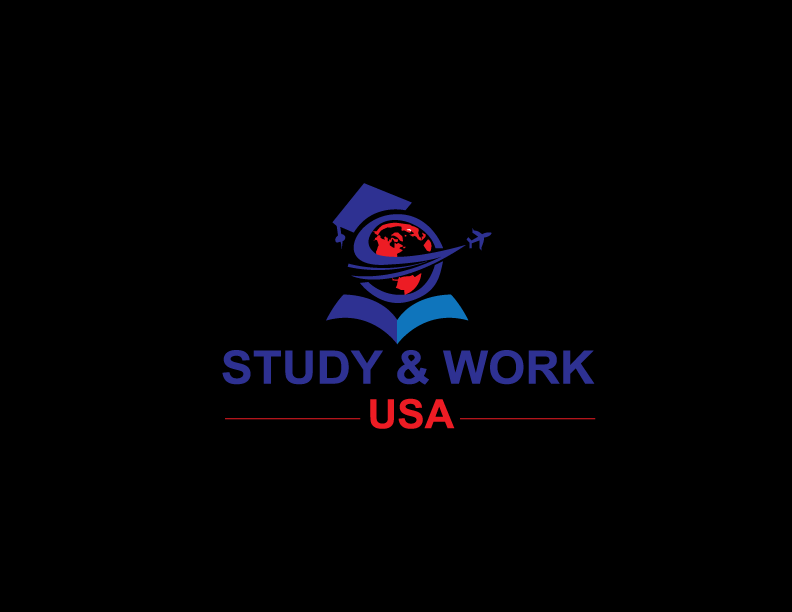Top US Courses That Guarantee Employment: An International Student’s Guide
Choosing the right course in the U.S. is the most critical decision for an international student aiming for long-term employment. The landscape is heavily biased toward fields that are in high demand and offer the STEM OPT Extension—a crucial 24-month work permit extension that provides three full years of legal work authorization.
By targeting degrees in Science, Technology, Engineering, and Mathematics (STEM), you align your education with the most aggressive hiring sectors and the strongest H-1B sponsorship trends. Here is a breakdown of the top fields that consistently lead to high-paying jobs and long-term residency pathways.
1. The Technology & Data Nexus (Highest Demand)
The American job market is, at its core, a technology market. Degrees that equip you to manage, analyze, and secure data are the gold standard for employment and visa sponsorship.
A. Data Science & Business Analytics
Data Science professionals are the modern-day gold miners, extracting value from massive datasets. These roles exist across every industry—finance, healthcare, retail, and tech.
- Career Paths: Data Scientist, Business Intelligence Developer, Data Analyst, Machine Learning Engineer.
- Why it Leads to Employment: This field directly addresses the constant need for data-driven decision-making. Most programs are STEM-designated, providing the 36 months of work authorization (OPT + STEM OPT) that employers desire.
- Essential Skills: Python, R, SQL, Machine Learning Algorithms, Statistical Modeling.
- External Link: For current salary and job growth statistics, check the Bureau of Labor Statistics for Data Scientists (BLS)
[External Link: BLS Data Scientist Outlook]
B. Computer Science & Software Engineering
This remains the foundational powerhouse. While competition is high, the absolute demand for talent in software development, cloud computing, and AI ensures strong prospects for graduates from reputable programs.
- Career Paths: Software Developer, Cloud Engineer (AWS, Azure, GCP), AI/ML Engineer, Solutions Architect.
- Why it Leads to Employment: Major US companies (Google, Microsoft, Amazon, etc.) are the largest H-1B sponsors and primarily hire from these pools. A Master’s degree in CS significantly increases your chances in the H-1B lottery.
- Internal Link: To understand the specific visa process, read our comprehensive Kenyan Graduate’s Guide to OPT and H-1B Visas
C. Cybersecurity
As businesses increasingly move to the cloud, protecting their digital assets has become paramount. The gap between demand and skilled talent in cybersecurity is significant, making it a lucrative and stable field for international students.
- Career Paths: Cybersecurity Analyst, Information Security Manager, Penetration Tester.
- Why it Leads to Employment: It is a critical, in-demand specialty. Employers cannot outsource security and must hire dedicated, skilled professionals, often making H-1B sponsorship a necessity.
2. Engineering Disciplines (The Builders)
Engineering remains a classic, highly respected, and well-compensated career path. Specific engineering fields also qualify for the STEM OPT extension, offering that vital bridge to long-term residency.
A. Electrical and Computer Engineering (ECE)
This field forms the basis for everything from semiconductor design to telecommunications and robotics. It is one of the most historically reliable sources of H-1B petitions.
- Career Paths: Hardware Engineer, Robotics Specialist, Systems Engineer.
- Why it Leads to Employment: ECE skills are essential in the advanced manufacturing and high-tech sectors, which have long-standing processes for sponsoring international talent.
B. Mechanical & Civil Engineering
While perceived as less “trendy” than software, these fields are essential for core infrastructure, construction, and renewable energy projects—all areas seeing major U.S. government investment.
- Career Paths: Structural Engineer, HVAC Design Engineer, Project Manager (Civil).
- Why it Leads to Employment: Positions often involve highly specialized knowledge required for public safety and critical infrastructure, meeting the core requirements of a “specialty occupation” for the H-1B visa.
3. Healthcare & Public Service (Always in Demand)
The U.S. healthcare sector is experiencing a chronic shortage of specialized professionals, making nursing and other advanced healthcare degrees an excellent choice for international graduates willing to navigate the licensing processes.
A. Nursing (BSN, MSN, DNP)
Registered Nurses (RNs) are consistently listed among the most in-demand professionals in the US. Advanced degrees like Nurse Practitioner (NP) or Doctor of Nursing Practice (DNP) offer exceptional salary and job security.
- Career Paths: Registered Nurse (RN), Nurse Practitioner (NP), Clinical Nurse Specialist.
- Why it Leads to Employment: The demand is projected to grow by 6% through 2033 according to the BLS, driven by an aging population and high turnover. Many hospitals and healthcare systems are highly experienced in managing visa sponsorship for medical professionals.
- External Link: For details on licensing and the NCLEX exam process, visit the National Council of State Boards of Nursing (NCSBN)
[External Link: NCSBN Licensing Info]
- Consideration: You will need to pass the NCLEX-RN exam and meet state-specific licensing requirements, which can be complex for foreign-trained graduates.
B. Public Health (MPH)
A Master of Public Health (MPH) is increasingly valuable, especially for international students seeking roles in NGOs, government agencies, or private health consulting.
- Career Paths: Epidemiologist, Biostatistician, Health Policy Analyst.
- Why it Leads to Employment: The COVID-19 pandemic highlighted the critical need for public health experts. Many MPH programs are STEM-designated (especially those focusing on Biostatistics or Epidemiology), offering the OPT advantage.
4. Business with a Technical Edge (The Hybrids)
The traditional Master of Business Administration (MBA) is always popular, but international students maximize their employment prospects by choosing STEM-designated MBA or related master’s programs.
A. Finance / Financial Engineering
Degrees that blend finance and high-level quantitative skills (like quantitative modeling) are extremely valuable on Wall Street and in major financial hubs.
- Career Paths: Financial Analyst, Investment Banker (highly competitive), Quantitative Analyst (Quant).
- Why it Leads to Employment: The demand for Quants and high-level financial analysts is constant. Many top-tier master’s programs in Financial Engineering (MFE) are STEM-designated, providing a huge advantage over traditional MBA programs.
B. Logistics and Supply Chain Management
This field saw a massive boom following global supply chain disruptions. International students, often bringing a global perspective, are highly valued in roles that optimize complex, international logistics networks.
- Career Paths: Supply Chain Manager, Logistics Analyst, Operations Research Analyst.
- Why it Leads to Employment: These are operational, high-value roles that are critical to a company’s bottom line, making the case for H-1B sponsorship much easier for the employer.
Final Steps and Resources
The foundation of your U.S. career is your visa compliance. Don’t let your academic success be undermined by administrative errors.
| Course Field | Key Jobs | OPT Advantage (STEM?) | Long-Term Outlook |
| Data Science / AI | Data Scientist, ML Engineer | Yes (36 Months) | Excellent: High salary, constant demand across all sectors. |
| Computer Science | Software Developer, Cloud Engineer | Yes (36 Months) | Excellent: Primary feeder into top H-1B sponsoring companies. |
| Engineering (ECE) | Hardware Engineer, Robotics | Yes (36 Months) | Strong: Core industries require specialized technical skills. |
| Nursing (MSN/DNP) | Nurse Practitioner, RN | No (Non-STEM) | Strongest job demand in healthcare. |
| Business Analytics | BI Developer, Financial Analyst | Often Yes (36 Months) | Very Good: Blends business knowledge with in-demand technical skills. |
The foundation of your U.S. career is your visa compliance. Don’t let your academic success be undermined by administrative errors.
- Internal Link: For more guidance on optimizing your profile and maximizing your chances, check out our piece on How to Get the Most Out of Your CPT Internships
- Need Personalized Advice? If you have questions about specific STEM OPT requirements or which program is right for you, reach out to our team of US immigration experts
Start planning now—your career clock is ticking!


